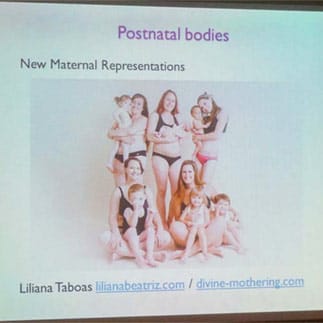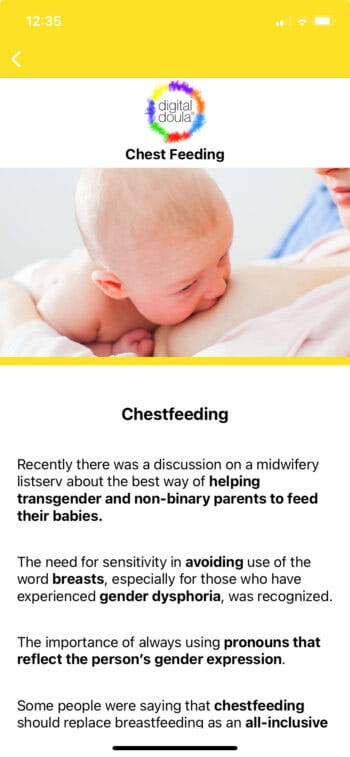I recently received an email about dealing with disappointment, which often happens as the result of unmet expectations we have about how things should be or turn out. We can feel a range of emotions when we feel let down, by ourselves or by others. It’s a tough feeling to experience but it’s a natural part of life. Sometimes those expectations are external, imposed on us by others who expect us to behave in a certain way, leaving us feeling compelled to comply with others’ expectations. Sometimes it’s our own internal expectations of what we must do or how we must act that create a dissonance for us when we find we are unable to fulfill them. Disappointment often leaves us feeling deflated with its message that things don’t always turn out the way we want. One way to move beyond disappointment is to acknowledge it’s there and allow its expression; yet many people feel unable to do that. The more we can accept how we feel, and process it through feeling it, the sooner we can heal. One effective way of processing disappointment is to write about the experience of being disappointed – what was the situation that preceded it? What were we hoping would happen? What did actually happen? The gift of disappointment is that it brings us back to reality so we don’t get stuck in the realm of ‘how things might have been’. As we reflect on other disappointments in our life and how we have moved past them, we may even see that in some cases what happened was actually better in the long run than what we had wanted to happen. To reduce disappointment we need to lower our expectations.
An early lesson on expectations
When I was still a young woman, a child of the encounter movement of the late 1960s and early 1970s, and studying psychology during the Fritz Perls era of Gestalt psychology, I came across a quote that stayed with me throughout my life:
“I do my thing and you do your thing.
I am not in this world to live up to your expectations,
And you are not in this world to live up to mine.
You are you, and I am I, and if by chance we find each other, it’s beautiful.
If not, it can’t be helped.” — Frederick S. Perls
I consider myself lucky to have learned this at such a young age because it has served me well; I didn’t let others’ expectations force me into doing something I didn’t feel applied to me, and I wasn’t unduly harsh with myself in creating expectations that others couldn’t meet. That’s not to say that I don’t get disappointed. It’s just that I internalized a belief that we are not here to live up to each other’s expectations. In relationships, this is a challenging thing, but it allows us to connect as people whole unto ourselves, and I am a firm believer that we must learn to love ourselves before we are able to love others with a truly open heart. This is much easier said than done, and I admit that it’s been a lifelong ‘journey to the heart’ for me, but self-acceptance and self-love make it possible to steer through those moments of disappointment in grounded and empowered ways.
Comparison
As a psychotherapist, I find that many of my clients are paralyzed by comparison, made significantly worse by social media. Facebook is one of the worst culprits for setting up false comparisons because people tend to post only the best images of themselves, or create an illusion around their achievements. We imagine that they have it all together while we see only our shortcomings as we struggle to get through each day. I remind them that the public image that is on display on Facebook and other social media is covering up the insecurities and uncertainties that others are experiencing in their own lives. I offer a quote from Theodore Roosevelt, the 26th President of the United States in the first decade of the 20th century: “Comparison is the thief of joy.” Comparing our appearance, our career, our partner, our home, our children or anything else only makes us unhappy because we know all the dirty details of our own situations or problems and only the surface seemingly positive information about them. We need to not hold ourselves up to some vague standard of greatness – this robs us of the joy of our unique position in life. It also must be said that we are not always comparing ourselves with others; sometimes we are comparing our current situation to the way things used to be. Reflecting on the past is fine, but we need to understand that life is replete with change, and if we are living in the past, we can end up sacrificing our futures to an inflexible expectation of how things are supposed to be.
Perfectionism
One way that comparison seems to play out in people’s lives, especially with women it seems, is the pursuit of perfection. Perfection is an impossible goal, as we all have flaws and foibles, and that’s what makes us human. Others may seem superficially perfect, but we don’t know what they are hiding underneath, just like we don’t see swans paddling busily under water as they glide across the lake. Recently I gave a presentation called ‘Postnatal bodies: distorted representations, body images, and mothers’ real life experience’ to a Birthlight conference on maternal representations. Again, the media plays a part in convincing women that they should expect to be physical specimens of postnatal perfection, based on the stories we read about celebrities who get back to their pre-pregnant body within weeks of giving birth. The ordinary woman does not have personal trainers and private chefs and the other accoutrements of celebrity culture to make that happen, and then they criticize themselves for their normally fleshy and stretched out bodies. I taught postnatal exercise classes for twenty years, so I know about women’s concerns in getting back into shape. And in those days there wasn’t the 24/7 presence of internet websites and social media to exacerbate those concerns. Today it’s a completely different picture. We are inundated with unrealistic images and stories of how we should look and feel after birth that feed into our sense of incompetence and lower self-esteem. Here is a real image, created by Liliana Taboas, that I think speaks the truth about the variety of shapes and sizes of women’s postnatal bodies.

One word that inhibits us from living a realistic life is ‘should’. With my therapy clients I often have them count up the number of times they hear themselves saying should in the course of the day. They are shocked to realize how frequently it pops up. We stop ourselves from growing when we create expectations of what we should do, should be, or should have. These shoulds are the fuel that feeds the notion that perfection is the goal. There is a wonderful concept that comes from the Japanese culture called Wabi Sabi – finding the beauty and perfection in imperfection. It honors what is imperfect, impermanent, and incomplete, and finds the beauty in what is modest, humble and unconventional. When applied to us humans, it is the deep and profound appreciation for our uniqueness. In the Japanese culture, if a large vase has a crack in it, they often will fill the crack with gold and put the vase on a pedestal to display the history and beauty of its imperfections. Like the cracked urn, fissures are a part of ourselves that cannot be changed, and Wabi Sabi helps us love and accept the cracks in ourselves and those around us.
Depression
One place that high expectations show up is with depression. The inability to reconcile the disappointment of not meeting those expectations often contributes to the experience of depression and anxiety. We feel hopeless and despairing, locked in the failures of the past, ruminating about all the negatives that seem to overwhelm our mental processes. Depression can be immobilizing, lonely, oppressive, and exhausting. A persistent sadness, disinterest in things that once brought us pleasure, self-blame and guilt, lack of focus and poor concentration are all common symptoms of depression. And because there is still a stigma attached to mental illness, many people delay getting help that would restore a sense of balance and hope for the future. This is especially true for women and their partners who experience perinatal depression – sometimes during pregnancy and more commonly in the postnatal period. We know that up to 20% of women will experience perinatal mood and anxiety disorders; 10% of men can experience perinatal depression too. We know that 33% of women experience anxiety and 17% of men do too. There are long term consequences for families, whether one or both parents are depressed, specifically on the development of the infant on many levels – cognitive, physical, social and emotional.

The tyranny of expectations places a large burden on new mothers. The social pressure they feel to be/appear perfect prevents them from seeking access to care. A common belief is that if they were to reveal that they are not coping effectively they would lose their children to child protection services. The expectation that becoming a mother will be joyful and exhilarating, when they are feeling miserable and exhausted, leads women to think that there is something defective about them or they are doing something wrong. What they imagined life would be (idealized expectations) and the stressed out reality of what’s actually happening are in stark contrast, so they suffer in silence lest someone judge them harshly for not meeting those expectations. They compare themselves to other mothers and find themselves wanting, assuming others are doing a better job. They believe they are a bad parent because they are unable to respond to their babies the way that others are able to. Then they withdraw, and the loneliness intensifies the situation. The secrecy surrounding depression leads others to say things like “you don’t look depressed”. It’s called ‘apparent competence’, and it refers to outwardly seeming in control and able to cope, while inwardly being completely lost or mentally unwell. Depression is not visible, like a broken leg might be, but a broken mind needs healing too and often it goes unrecognized. It is perpetuated by the fear that their babies will be taken away if they reveal the truth.
Peer Support
There are resources for peer support that are making a big difference for new mothers who are suffering with postnatal depression. One forum is the #PNDHour Twitter chat that takes place on Wednesday evenings in the UK. The slogan for the group is Connection, Support, and Empowerment. It is a safe place for women, and some men, to share their experiences and know that they are not alone. One woman said that participating in the chat has helped her so much that she doesn’t need to take medication anymore. Another said she is ‘learning to love the parent I am becoming rather than the parent I thought I should be’. There’s that should word again! One woman would advise other mothers with these words: “You are a ‘good enough parent’, that’s all your baby needs”. There is a profound level of acceptance that is offered by both mothers and professionals who participate, like myself. And that acceptance goes a long way to helping new mothers learn to accept and love themselves and their babies. I call that Wabi Sabi mothering (the subject of my next blog). There are also peer support groups that offer support and a community for new mothers to feel safe, in person; Facebook groups that offer support and a place to vent, like Postpartum Support International (PSI); international organizations, including PSI and Postpartum Progress, among others. There is another Twitter forum for mothers who have experienced birth trauma, called #BirthTraumaChat, which meets on Monday evenings, providing the same kind of peer support to traumatized mothers, and there is the Birth Trauma Association Facebook page. With resources shrinking for the professional support for mothers (I work with clients as a perinatal psychotherapist, but women struggle to afford going private, especially when they are on one income), these peer support resources for troubled parents are filling the gap. That’s a wonderful thing.

Fostering Relationships
In the last year I successfully completed a training offered by Elly Taylor, relationship counsellor and author of the fantastic book Becoming Us: 8 Steps to Growing a Family That Thrives. As a newly certified facilitator of the Becoming US model of relationship support for partners becoming parents, I’m really excited to be offering coaching and classes for couples that can help them navigate the stressful and sometimes overwhelming changes that becoming parents creates. I’ve had the privilege of working with Elly on a number of collaborations over the years – we presented a workshop at one conference and a poster session at another, were on the same panel at the Parenting 2.0 2014 conference, and also created a Facebook group for Relationship Focused Birth Professionals. Although I have been working with couples with the Birth Empowerment Workshop® couples’ retreat for many years, the training has broadened my perspective and delivered the evidence base for working individually, in groups, and in classes with couples preparing for parenthood. It’s based on the question that many new parents experience: “Why didn’t anyone tell me about this?” Now couples are able to stay on the same page with each other as they make the sometimes turbulent transition to parenthood.
In the Becoming Us training, there was an entire module on expectations of parenthood, and how they are shaped by a variety of influences, including the various forms of media, family, and friends, just to name a few. Not only do we have expectations about parenthood, we have expectations about relationships, expectations about ourselves, our partners and our babies, and expectations of life. Some expectations are helpful, and some are unhelpful, and one of my roles as a parenting coach is to transform unhelpful expectations into helpful ones. Taylor presents some staggering statistics about the percentages of women who found the reality of life after birth hard to cope with (Naked Motherhood by Wendy LeBlanc). If we address these unhelpful expectations during pregnancy, we can set a positive tone for how life will unfold after the baby is born. This is the missing link in prenatal/antenatal classes – preparing for parenthood, and I am thrilled to be bringing this brilliant work to my community.
Conclusion
When we are no longer ruled by the tyranny of unhelpful expectations, we take back the power to create our lives grounded in the reality of healthy expectations. We can negotiate the positive with the negative because life is going to be full of ups and downs on the journey. I genuinely believe that if we strengthen the couple relationship we reduce the risk of perinatal mood and anxiety disorders for parents, which happens to be the title of an article I wrote for the Journal for Health Visiting. And instead of disappointment, we nurture constructive strategies for optimal wellbeing for mothers, partners and their families.
Thank you for reading this long blog and I hope you have enjoyed it!

I hope you have enjoyed this post. Use the search bar below to find other interesting content on this site.
Post Categories









Very timely and interesting article, Diane. It resonates very much with the mindfulness training as one effective route to well-being and fulfilling parenting. When we guide parents to processing their disappointed expectations and consequent negative emotions, we help them strengthen a realistic self and attune with it, so that to become attuned to their partner as well as their baby. Nowadays too many things interfere with and disturb this process, such as social media, hindering the capacity to connect with one’s own feelings and others’. High expectations, the race of comparisons and comppetition fostered by our society, drives prospective and new parents away from trusting and relying on their own body, intuitions and wisdom.
Thank you for your response, Antonella. Helping the process of transforming unhelpful expectations into helpful expectations has value on many levels, as you say. Our work is instrumental in balancing the social pressures on prospective and new parents.